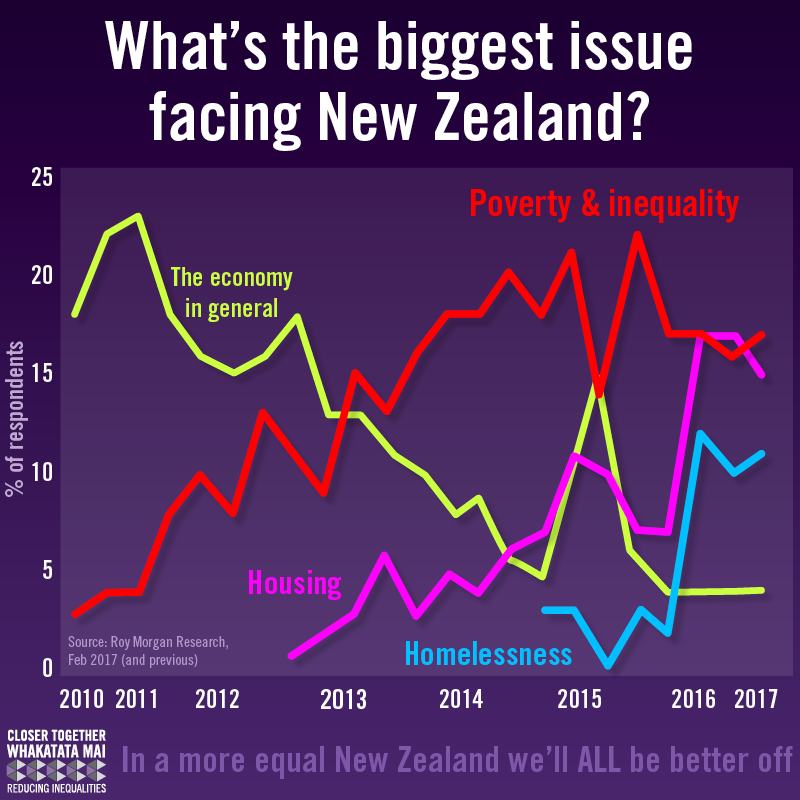 The most recent Roy Morgan poll asking people ‘what is the biggest problem facing New Zealand’ shows that housing and homelessness have emerged to join inequality and poverty as the leading problems that people are concerned about.
The most recent Roy Morgan poll asking people ‘what is the biggest problem facing New Zealand’ shows that housing and homelessness have emerged to join inequality and poverty as the leading problems that people are concerned about.
It will be no surprise that the on-going concerns of those working in social services in communities around the country will drive our NZCCSS election year work. People continue to struggle with low incomes as a result of continuing inequality while finding housing to rent or buy is not improving for those on low incomes. Indeed the crisis is sharpening in some areas as house prices in regions outside of Auckland rise. Families with children and all those living on a benefit (hundreds of thousands of people) are particularly impacted.
Social services are the essential parts of the web of supports that help communities to thrive. This year is perhaps the most uncertain time that social services have faced for many years. The “perfect storm” of years of inadequate funding, a total revamp of funding contracts for NGOs working with MSD, and a complete restructure of the Department of Child, Youth and Family into a new Minustry for Vulnerable Children, Oranga Tamariki, means huge risks that the end result will be services closing and families and communities losing support.
The aged care sector works with somewhere in the region of 100,000 older people either living in rest homes or receiving support in their own homes. More than 50,000 people are employed working with older people to support them and improve their wellbeing. The not-for-profit aged care organisations in our NZCCSS networks are more focused on meeting the needs of older people on low incomes and with high needs, yet face funding systems that are inadequate to meet current and future needs.
Your Feedback Invited
NZCCSS is working on identifying issues that are important for the people and communities that our social services work with. We do not have the resources to conduct extensive polling or feedback sessions but we are working with our national governing Council and our Policy Groups to identify key concerns and welcome any further feedback from those in our networks, so please contact us at [email protected] or 04 4732627.
Scoop Election Journalism
Meanwhile Scoop is “crowdsourcing” election journalism and asking readers to choose the issues they think most important in the upcoming election. The commitment to keeping media open, accessible and supportive of effective democracy is an essential element in times when claims of truth and fact are more disputed than ever.
